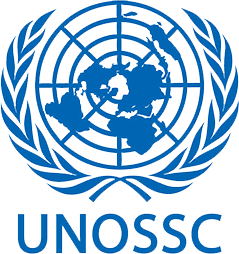SEED – Security and Development in the Global South
SEED – Security and Development in the Global South
Recognizing the close relation between security and development as a public policy matter is not a new phenomenon. However, incorporating the topic “safe and inclusive societies” as one of the 17 Sustainable Development Goals (SDG) in 2015, in addition to recent advances in the international agenda concerning sustainable peace, has brought new life to the discussion on this relation. Moreover, SDG number 16 and the idea of sustainable peace establish security and development as inseparable dimensions in the design and implementation of public policies.
Latin America is often portrayed as the most violent region in the world, which positions the region at the center in debates about the connection between security and development. For that reason, it is the central theme of the first phase of this research line.
In fact, Latin America is both a fertile ground for studies on serious problems and a provider of solutions in form of public security models as well as critical approaches to traditional means of development. For this reason, along with the “region-problem” picture, several Latin American security and development policies have circulated in the international community as good practices in order to build sustainable peace. These policies circulate through Cooperation South-South (CSS) mechanisms, though not exclusively – formal and institutionalized as well as informal circuits circulate the policies likewise.
Still, the region is facing different challenges that need these potentials to be used better, one of them involving the isolation of specialist communities and policymakers formulating development and security policies – a trend that is also observed on global level. In other words, the inseparable character between the rationalities of security and development is not reflected in the interaction between professionals within these two fields.
One of the main consequences of this lack of dialogue poses a second order of challenges to be overcome in order to harness the observed potential in Latin America: development initiatives are often hampered by a security rationale that in many cases is detrimental and even prevents long-lasting results from being harvested.
Based on the fact that the systematic production of knowledge that works the security-development nexus is still rare, and in order to respect its complexity, this BPC research line seeks to address issues such as the following:
- How does the increasing militarization of public safety in Latin America, for example, affect the intended durability development projects in the region?
- What impact do international development projects have on peace perspectives in different moments and contexts?
- How have public safety models and development projects implemented in the region considered participation and social inclusion in its design and execution?
- How do these experiences contribute to the circulation of inter-regional practices in the fields of security and development?
- Regarding the challenges facing Cooperation South-South, how has Latin America appeared in the global architecture for monitoring and evaluating projects in the intersection between peace and development?
- Which are the principal interaction modalities between the professionals in the field of development and the field of public security in Latin America?
In the long run, the goals of the research line are as follows:
- To extend and strengthen the participation of the Latin American countries in the institutions of global governance in the context of the security-development nexus debate.
- To learn from and support the role of key actors in the debate on security and development, especially with regard to marginalized groups.
- To strengthen the relevant national institutions, including through international cooperation, in order to prevent violence.
- To point out possible dynamics at the intersection of the security-development nexus that could have a negative effect on the achievement of international commitments in several associated areas such as SDG 16 of Agenda 2030, UN resolutions on sustained peace and the Global Compact for Migration, agreements for the protection of the environment.
In this way, the project is related to several themes studied at BPC: international cooperation, sustainability, the right to the city and the role of technology and innovation – constantly engaging with these lines in order to understand and promote intersections.
Publications
The Case for South-South Cooperation on Peace and Development
This document takes two steps and makes two general, related arguments: we mobilize existing cases of SSC on P&D and suggest this valuable knowledge needs to be systematized and made...
Events
Experts
Apoio Institucional





